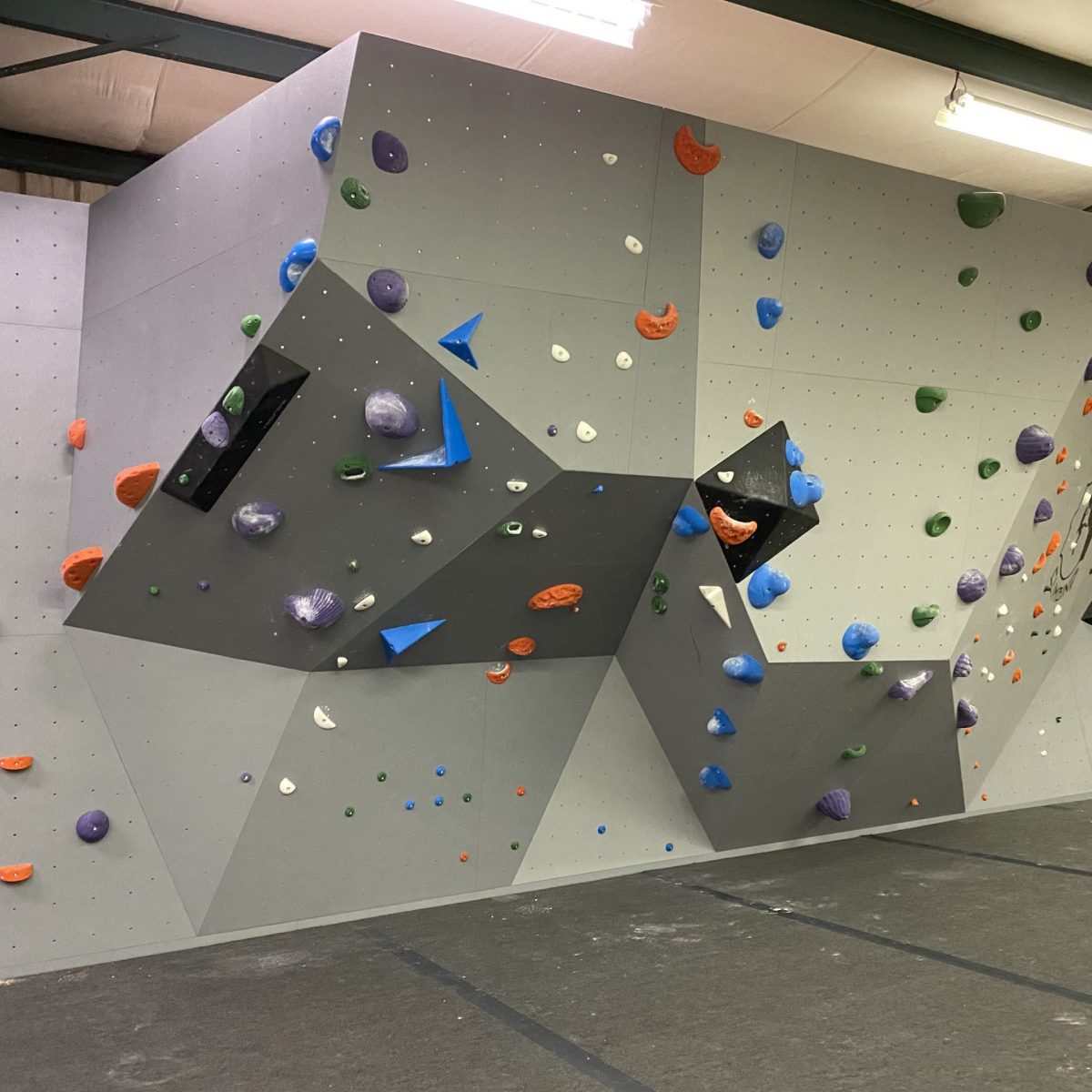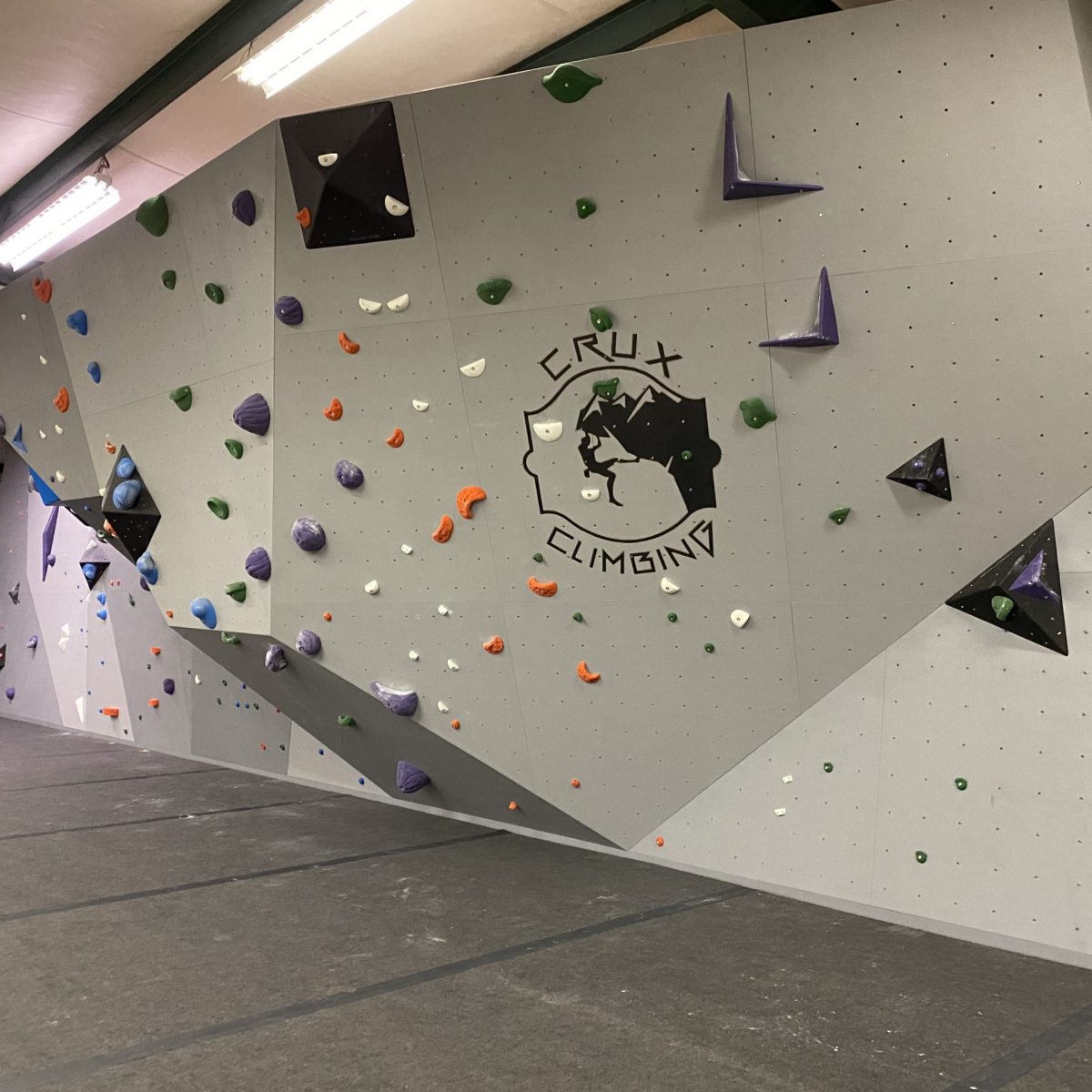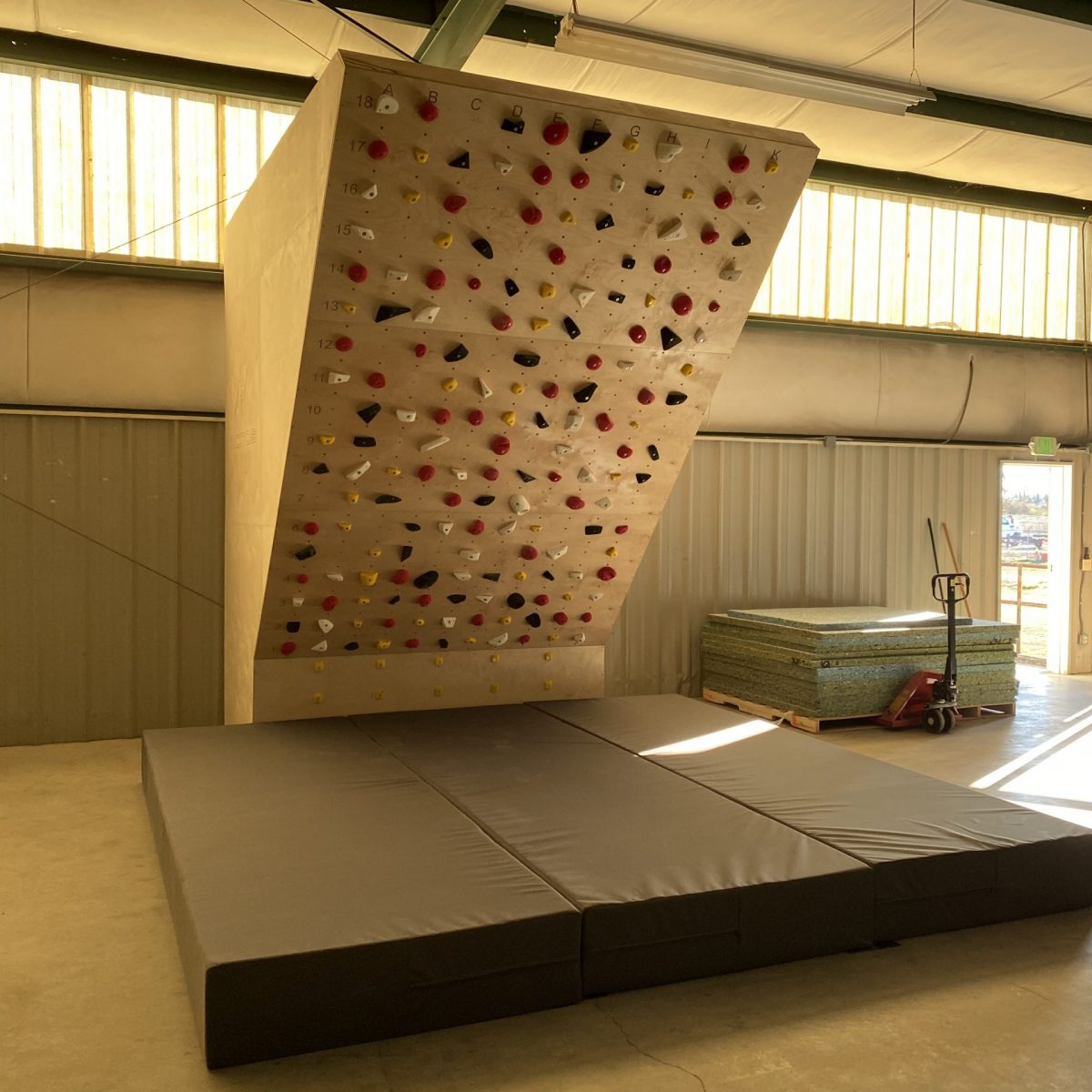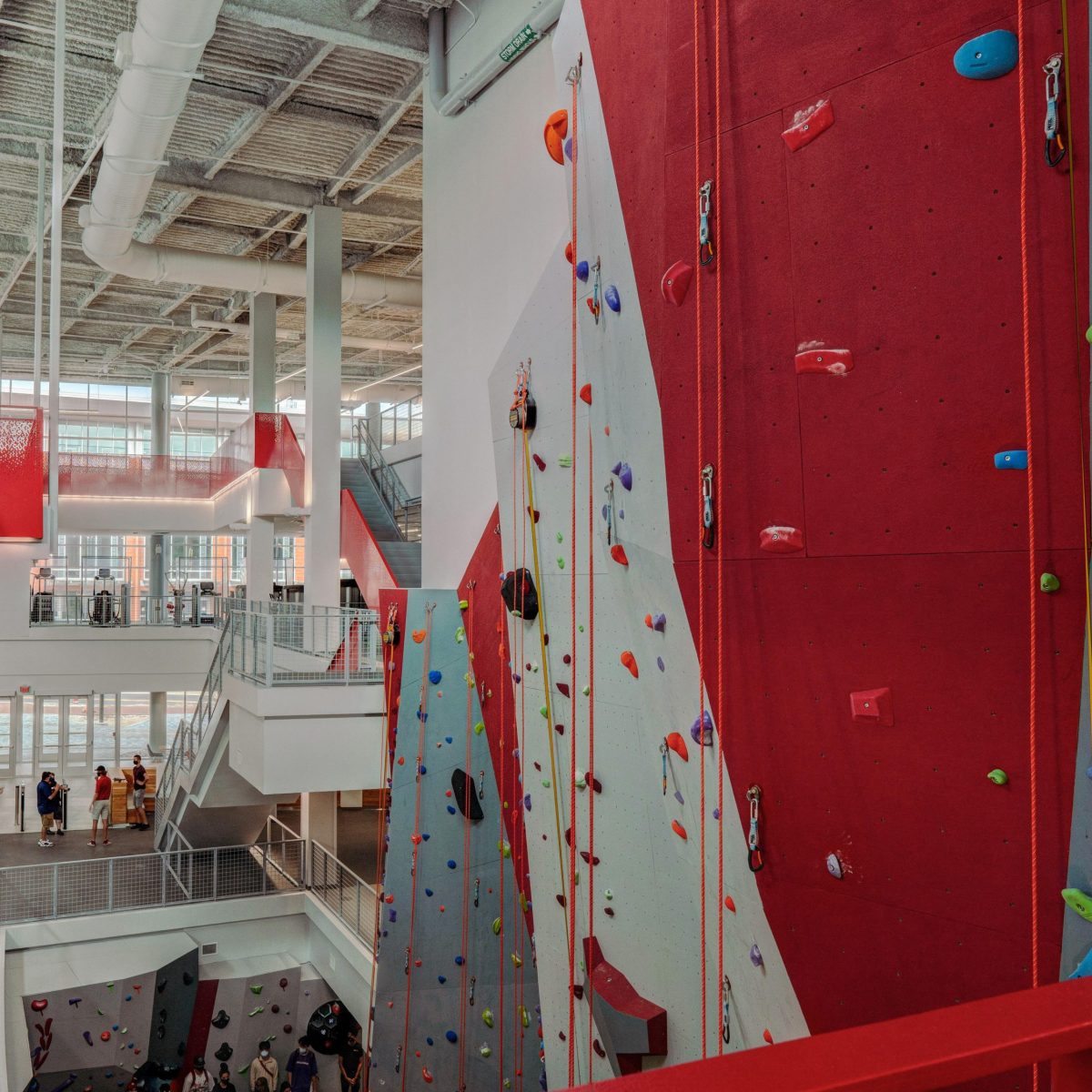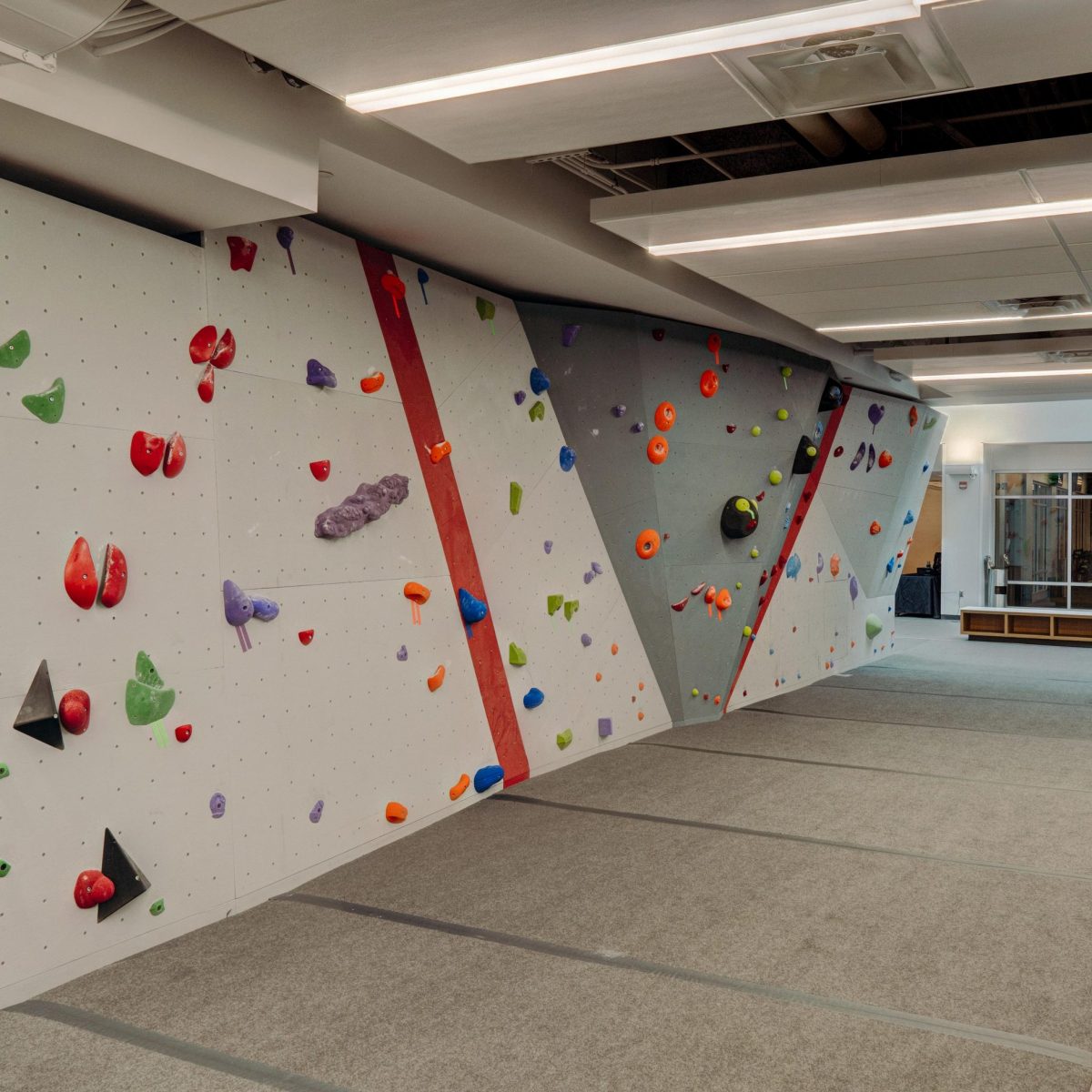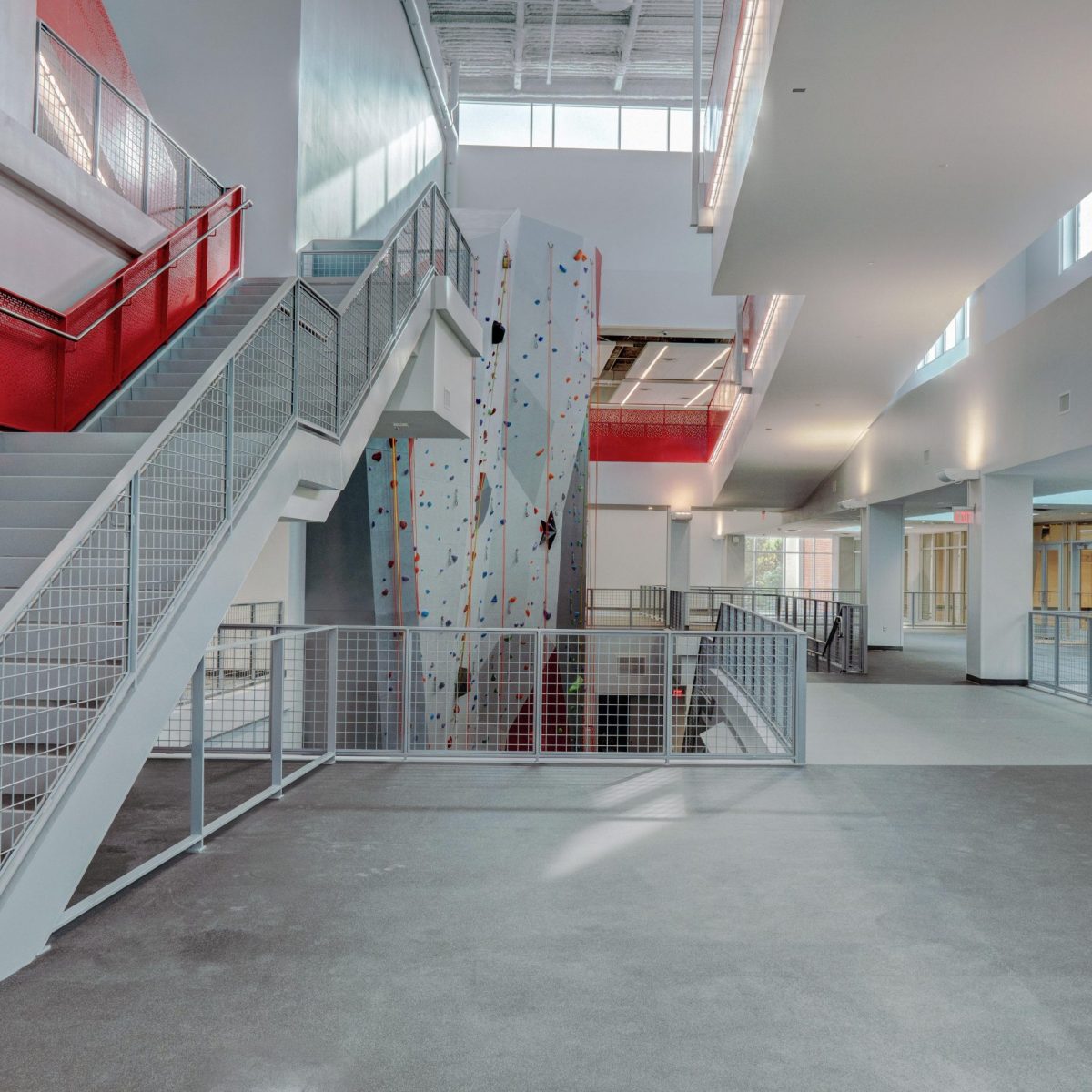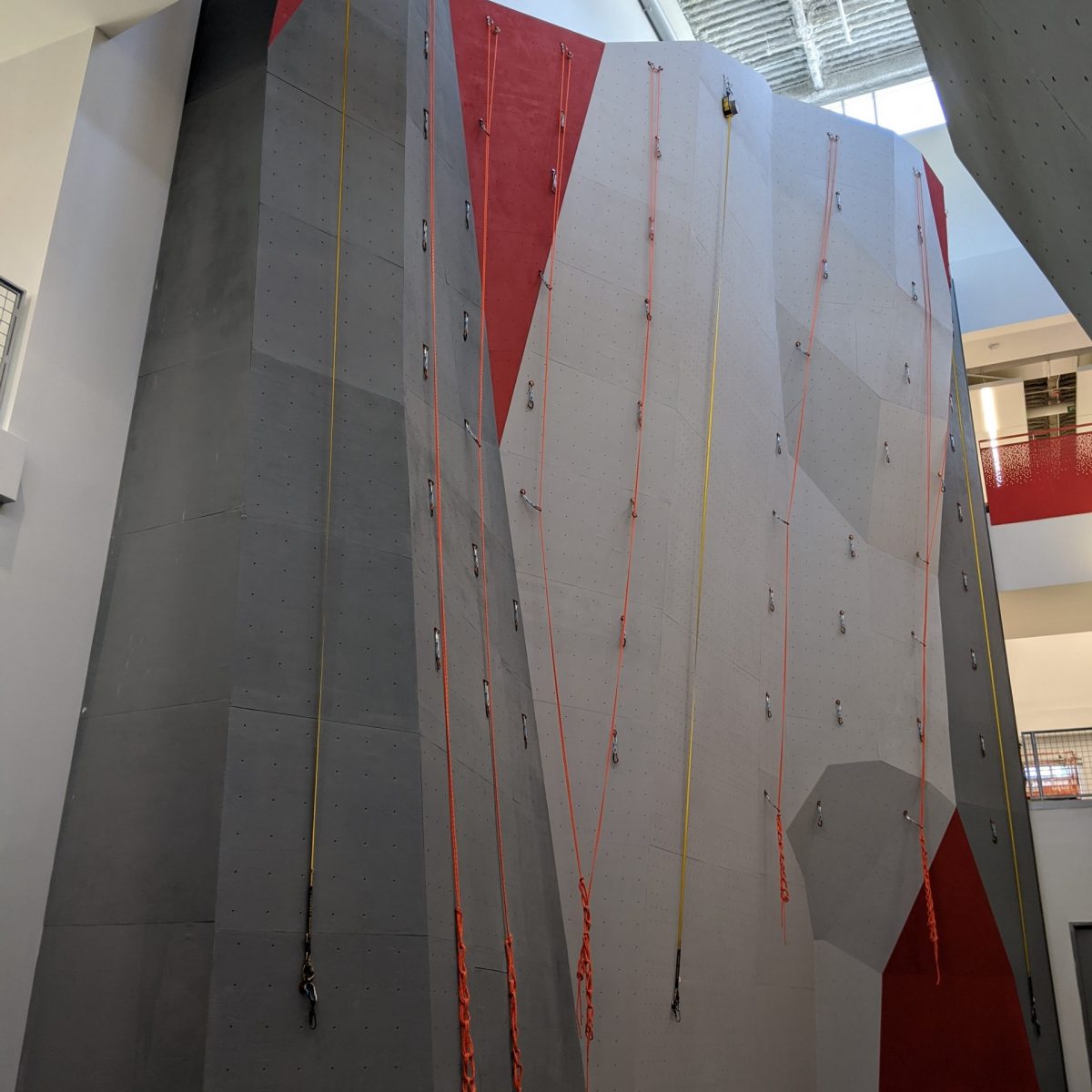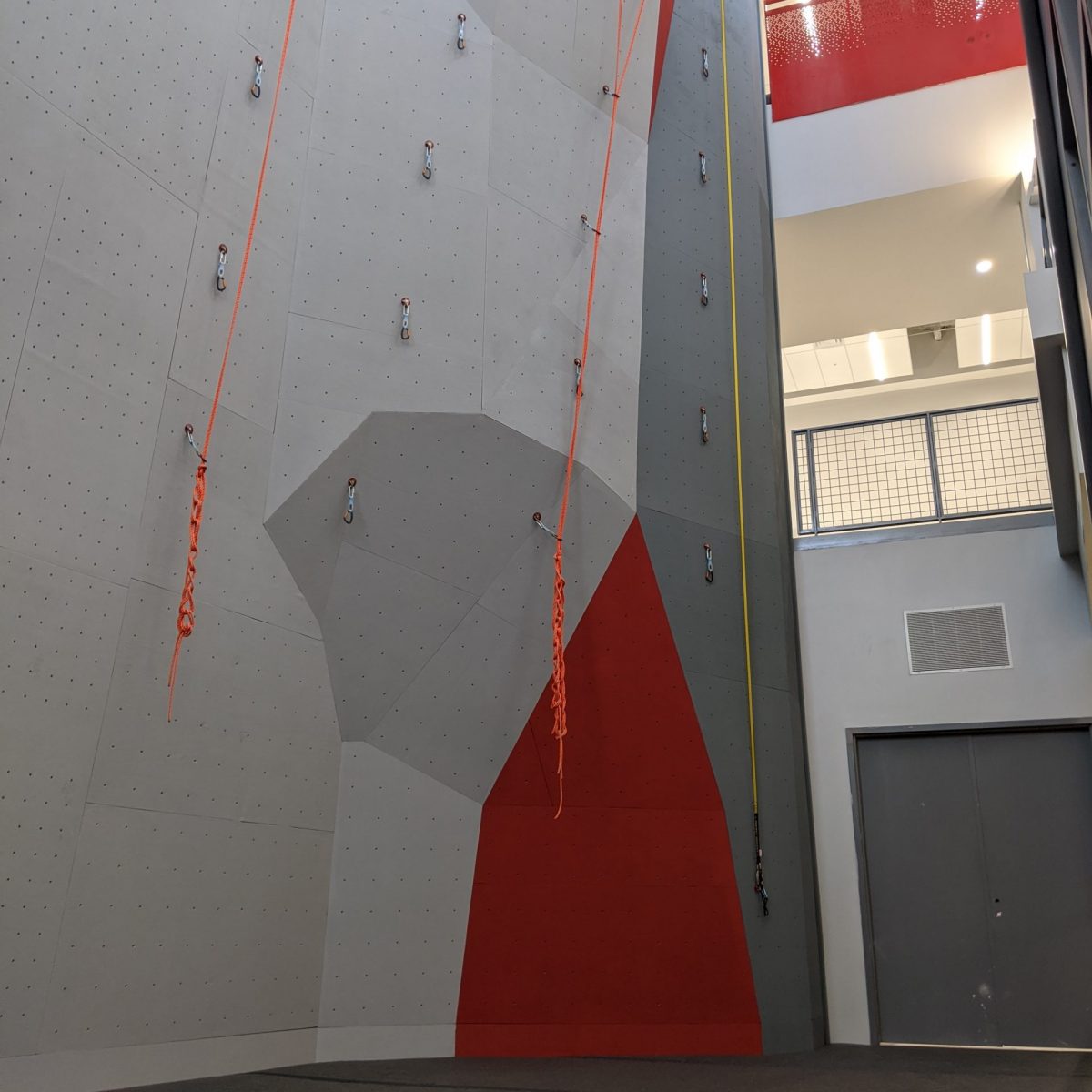NicroLite™
NicroLite™ is our premium polymer-coated plywood climbing wall system. Sleek and customizable by design, this wall system is easy to clean and versatile for novices and experts alike.
OVERVIEW
NicroLite™ wall systems are made with the highest quality materials, texture, manufacturing process and durability standard. The use of Baltic Birch plywood provides the best substrate to which the polymer-texture can be applied for walls that are both strong and visually appealing. The polymer-texture is not only durable and wear-resistant, but also easy to clean and impervious to scuffs and marking. Customers have the ability to customize the color, size, shape, T-nut density, and even the type of plywood used for their NicroLite™ walls, making the aesthetic possibilities endless.
REQUEST INFORMATION/QUOTE
FEATURES
Appearance. The flat planes, and geometric breaks of NicroLite™ wall systems make them the perfect canvas for showcasing climbing routes and bouldering problems as not only challenging physical feats, but also as stunning artistic creations. Our skilled wall architects can create designs to compliment any facility. NicroLite™Walls come in our standard colors or can be custom colored upon request to compliment your unique color scheme or branding.
Versatility. NicroLite™ walls provide the most flexibility when it comes to route setting and volume installation. With a uniform application of texture, any size and shape of hold can be installed without fear of flexing during placement or rotation during use. The walls themselves are easily adaptable for any space or layout and perfectly suited for anything from home walls to educational spaces, recreational facilities and climbing gyms.
Feel. The distinctive formula for NicroLite™ polymer coating highlights both its texture and friction-enhanced surfacing while supporting the wall’s unique anti-marking properties. Rubber marks from shoes are easily removed with a stiff nylon brush without compromising the wall’s texture.
Durability. With its base of Baltic Birch plywood, NicroLite™ wall systems have fantastic screw retention when adding holds and features to the wall without damaging the overall structure. This strong base is covered and strengthened by the polymer coating entirely bonding it to the wood, the result is a climbing wall that will truly stand the test of time. Not only will the structure itself hold up to use and abuse, but the texture won’t chip off or get polished and slick.
Design. Sleek and contemporary in appearance, this wall system displays both a novel beauty and unassuming utility. NicroLite™ walls can be configured into just about any design conceivable. Designs include not only flat vertical walls, but also overhanging features, dihedrals, aretes, roofs, and more! Nicros can also custom color NicroLite™ walls to match your aesthetic and branding.
Handholds. Because of its uniform surfacing, there is no limit to the shape, size or type of climbing hold that can be installed on your NicroLite™ wall. A high T-nut density throughout the wall face allows for diverse hold placement during route setting. Check out the Nicros Store for our complete line of handhold products.
CONSTRUCTION
The first step in the process is the design phase. Depending on the project, this is either rendered as simple plan views and cross-sectional drawings or CAD renditions. Our design team works with you to create a wall that’s both visually striking and highly functional. Once a design is chosen, the engineering begins. All Nicros climbing wall designs are engineered to exceed industry standards (CWA General Specification for the Design and Engineering of Artificial Climbing Structures, First Edition).
Upon completion of the engineering, a primary steel frame is erected, and the polymer-coated Baltic Birch plywood sheets are lifted into place and attached to the steel frame. Finally, the protection anchors and handholds are installed, and the landing surface added. After a final inspection, your wall is ready for use.
SPECIFICATIONS
To download our specifications document, please click here.
